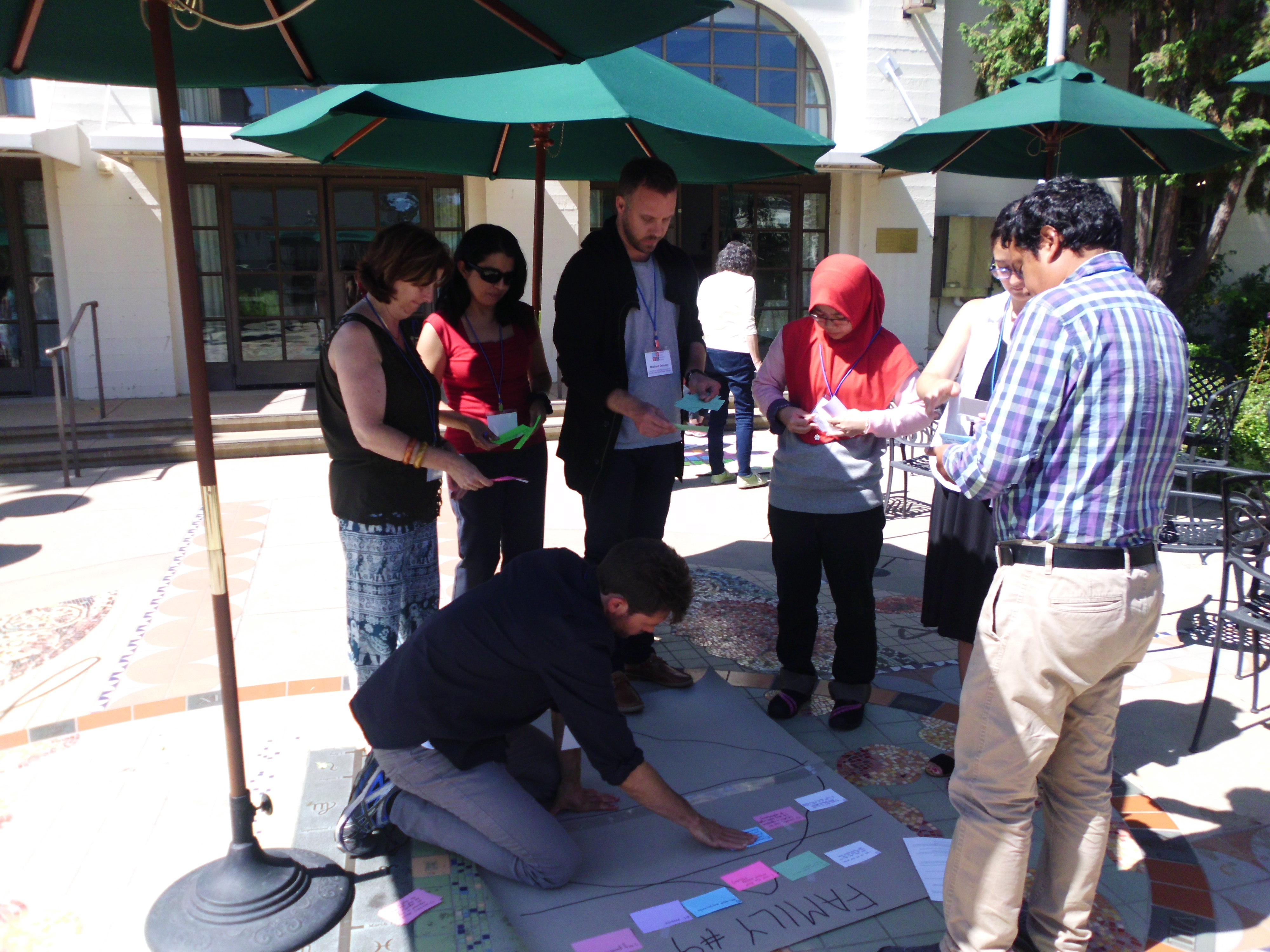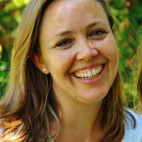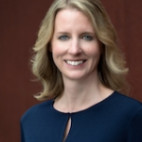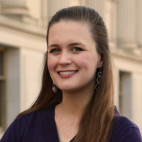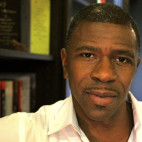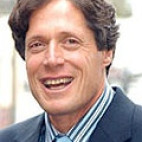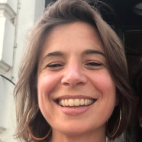-
PROPOSED SCHEDULE FOR THE WEEK
-
Sunday, July 14
-
3:00-6:00 pm
Registration
-
6:00-8:00 pm
Informal Reception and Activities (buffet dinner provided)
-
Monday, July 15
-
7:00-9:00am
Breakfast
-
7:00-8:00am
Yoga (optional)
-
7:30-8:30am
Hike (optional)
-
9:00am-12:30pm
Creating a safe learning environment and surfacing our deepest beliefs, values, and mental models about prosocial development within the school context
-
12:30-1:30pm
Lunch
-
1:30-3:30pm
Creating a safe learning environment and surfacing our deepest beliefs, values, and mental models about prosocial development within the school context
-
3:30-4:30pm
Webinar Q & A (optional)
-
Tuesday, July 16
-
9:00am-12:30pm
Caring for ourselves and building our own social-emotional competencies
-
1:30-3:30pm
Using the science of social-emotional well-being and mindfulness to nurture the teacher-student relationship
-
7:00-8:30pm
Special Presentation by Dr. Eve Ekman: Emotions, Frustration and Self-Compassion (optional)
-
Wednesday, July 17
-
9:00am-12:30pm
Using the science of power, empathy and compassion to build a positive school climate
-
1:30-3:30pm
Using the science of forgiveness and gratitude to build a positive school climate
-
4:15-5:45pm
Special Presentation by Dr. Eve Ekman: Empathy and Burnout (optional)
-
Thursday, July 18
-
9:00am-12:30pm
Ethical Development
-
1:30-3:30pm
Taking it home (sharing what you learned and experienced with those back home)
-
Friday, July 19
-
9:00am-12:30pm
Open Space (participants hold discussion groups on topics of their choice)
Closing
-
12:30-1:30pm
Lunch (optional, for those who would like to eat before traveling home)
- Venue: Clark Kerr Campus, UC Berkeley
- Date: Sunday July 14, 2019 - Friday July 19, 2019
-
Price: $2,600, which includes tuition, lodging, most meals, and materials.
-
What Is the Greater Good Summer Institute for Educators?
A quantum shift in how we educate our children is taking place in schools all over the world. Academic knowledge alone is no longer sufficient in helping students to cultivate happy, productive, and meaningful lives, and to make a positive contribution to their communities and the world. Indeed, a 2014 study found that emotional health and prosocial (kind and helpful) behavior in childhood had greater long-term impact on adult well-being than academic success.
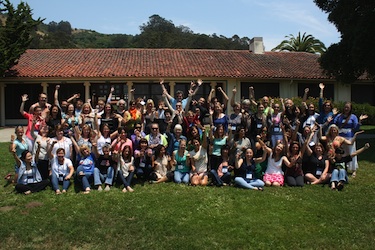
Schools are beginning to address this gap in student development by adopting social-emotional learning, mindfulness, character education, and other non-academic programs, all of which help improve students' well-being, in addition to increasing their school success.
But research tells us that there is a key ingredient to successfully implementing this work: You, the adult. Your well-being and understanding of these fields make all the difference in being able to effectively teach these concepts to students.
This is why at the GGSC Summer Institute for Educators we focus on the well-being and personal growth of educators first. We believe that the more you deepen your knowledge and practice of these concepts, the better you’ll be able to deliver them to the students you serve.
How do we do this? We start with the creation of a safe learning environment in which to question and perhaps re-shape our beliefs, assumptions, values, and practices around the educational process and our role in it. GGSC facilitators and guest faculty then integrate the science of social-emotional learning, mindfulness, character education, and other areas of prosocial human development, exploring with participants how this science can be woven into the DNA of schools, including school relationships, adult self-care, school climate, and academic content. We hope you'll join us for this inspiring, thought-provoking, and transformational week!
Participants will experience:
- Lectures and webinars on the science of prosocial human development
- Deep self-reflection, thought-provoking discussions, and collaborative strategy sessions to consider how this science applies to education
- Informal sharing with colleagues about what you are already doing to create thriving classrooms and schools
- A strong and lasting support network -- participants will be divided by job category into “families” of eight to ten who learn, explore, and play together throughout the six days. Participants will also have plenty of opportunities to connect with other educators outside their families.
Outcome:
Ultimately, participants will leave empowered with cutting-edge, science-based strategies, tools, and processes to adapt and share with students and adults in schools.
Learning Objectives
Participants will:
- Understand how the integration of social-emotional learning, mindfulness, and character education creates a comprehensive blueprint for the social, emotional, and ethical development of both adults and their students.
- Understand and practice how to view education through the lens of prosocial human development, including social-emotional learning, mindfulness, identity, purpose, mindset, and ethical development.
- Examine and understand how their beliefs about social, emotional, and ethical development affect their work with students and as education professionals, in general.
- Begin to envision culturally and developmentally appropriate, research-based tools, strategies, and processes for integrating the science of prosocial human development into many areas of education, including the teacher-student relationship, student and adult well-being, school and classroom climate, content, and pedagogy.
- Develop initial strategies for sharing this work with others back home.
Who Should Apply?
School professionals who are interested in cultivating the prosocial development and well-being of students and the adults who work with them, including:
- Pre-K through 12 classroom teachers, paraeducators, and out-of-school-time providers
- Pre-K-12 School mental health professionals and counselors
- Pre-K-12 School and district-level administrators
- Pre-K-12 Teacher and administrator educators
- Other higher education lecturers or professors are welcome to apply, but please be aware that the Institute is geared primarily towards Pre-K-12 educators
How to Apply

To apply, please click on the “Application” tab and complete the online form.
Applicants will be notified whether or not they are accepted into the Institute within two weeks of applying; payment will be due in full upon acceptance to the institute.
Groups of three or more from the same school and/or district will receive a 10% discount per person.
Lead Facilitators
Vicki Zakrzewski, Ph.D., is the Education Director at The Greater Good Science Center. A former teacher and school leader, she translates the science of prosocial human development into practical ways educators can use this science in their work. She has written numerous articles that have appeared in Greater Good, Edutopia, Educational Leadership, and Huffington Post, given talks and workshops all over the world, and consulted and collaborated with organizations such as CASEL, the Mind and Life Institute, Harvard’s Making Caring Common, the Jim Henson Company, and Pixar/Disney.
Amy L. Eva, Ph.D., is the Associate Education Director at The Greater Good Science Center. As a 25-year educator, she studies mindfulness, adolescent mental health and development, and social-emotional learning. She is an educational psychologist, a former high school teacher, and a teacher educator.
